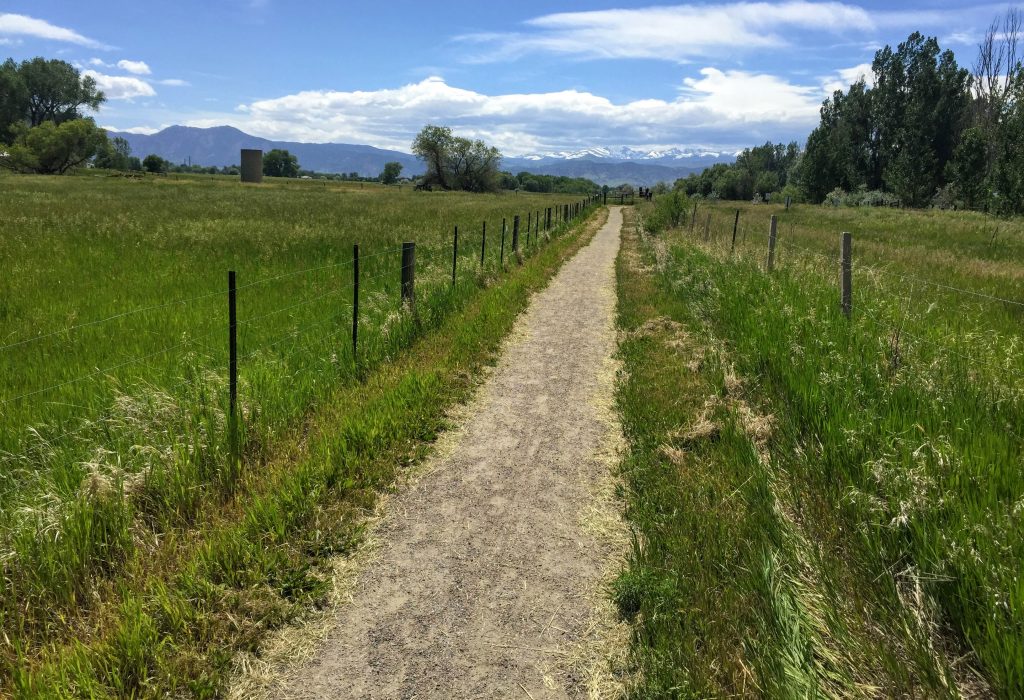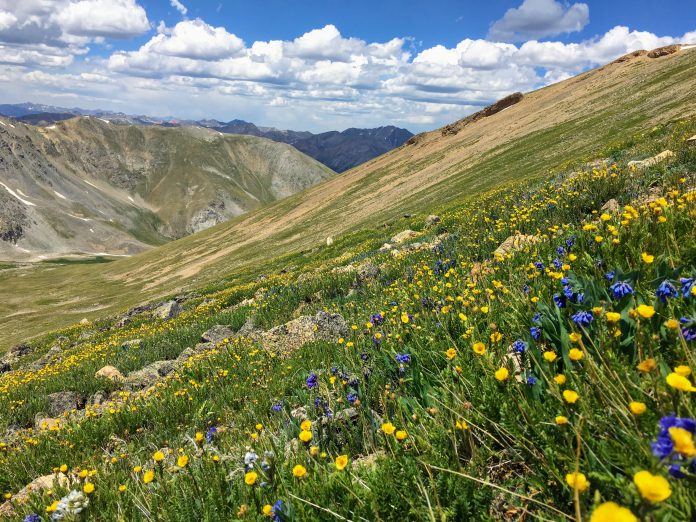Participation in trail running is skyrocketing, increasing from 8.58 million runners in 2016 to approximately 9.15 million in 2017, according to Statista. And a recent study found participation in ultrarunning increased by 345% over the past ten years.
All these extra trail miles put extra pressure on those very resources that make our sport possible. As a result, the trail running community’s impact on the environment is the subject of some recent controversy.
A snarky editorial in Outdoor magazine called out trail runners as “lazy parasites,” claiming they have an outsize impact on the natural environments without doing their fair share to clean it up. The mean-spirited tone of the piece (we wear “weird little utility belts” and are part of the “scrawny Forrest Gump set.”) raised the ire of the trail running community. While many contested its basic argument, others agreed that trail runners should contribute more to protecting the spaces its uses.
An irony of people spending more time in natural places is that it can actually be beneficial to them. I often complain when my own natural places get overcrowded, as I crave solitude and open space. Trying to get into RMNP on a weekend morning in the summer can be an hour-long trial. And yet, much as I think we need to protect natural spaces and quiet, this is a bit of an entitled attitude.

First, Clean Up The Shit On The Trail
I’m not sure whether us trail runners are actually lazy parasites, but we call all agree we ought to be mindful of the impact we have on the trail and the crap we may deposit there.
Fortunately, the trail running community is paying greater attention to protecting the spaces we use. Clare Gallagher is a record-setting trail ultrarunner also known for being a vocal environmentalist. She stresses the importance of becoming involved in the political process, knowing who your representatives are and what they’re voting on.
Other high-profile trail runners, like Mike Foote, have encouraged our community to help raise awareness about the protection of public lands. Similarly, Run Wild is a group of athletes seeking to protect public lands, spearheaded by ultrarunners Hallie Fox and Emily Peterson.
We can each do our best to make sure none of the detritus of our adventure — scraps of paper, edges of gel packets, used tissues – decorate the trail behind us. If we are particularly mindful, we may pick up other people’s trash – an exercise known as plogging. (I admit I usually come up with excuses why I don’t do this – such as that I don’t want to carry extra weight and besides, it’s not my trash – but the fact is that the trash is there, and someone’s gotta pick it up, so kudos to those who do).
Better yet, volunteer for a trail running and clean-up day and get in your miles while spiffing up the trail.
Moreover, we can examine those activities likely to have environmental impacts beyond damage to trails, such as the gasoline we burn to drive (or worse, fly) to trailheads, the new and expensive gear we may buy, or even the meat we may eat at our post-run banquet.

Now Clean Up The Shit Inside Your Head
While you’re hard at working cleaning up the outside world, why not spend a moment to clean up what’s inside your head? What mental garbage can you sweep up and toss outside where it belongs? What are the discarded paper cups and torn foil packets of your mind?
Here are some simple tips to keep your mind tidy while you’re out on the roads or trails:
- Focus on the task at hand: running. Allow your other anxieties, to-do lists, and insecurities to float way. You don’t need them now, and they’re just clutter.
- Throw out your self-created garbage. These are the scripts you repeat to yourself that remind you you’re not good enough, you’re messing up, you’re an impostor – whatever the self-doubt you repeat to yourself. Gently but firmly make note of these scripts and pack them in your own mental garbage bag, then dump ‘em in the recycling bin where they belong.
- Make to-do lists. My mind often feels cluttered by the many tasks, small and large, that compete for my attention during the day. Making lists of what I need to do helps get that clutter into a manageable form, and allows me to focus on just one of those tasks at a time, knowing that the lists are keeping track of the others.
- Practice gratitude. Remembering what you’re grateful for clears out negative emotions in favor of positive and constructive ones. It’s like replacing those tired old drapes in the living room with some new blinds that let the sunlight in.
- Get plenty of sleep. Adequate sleep is associated with better health and elevated mood. Getting good sleep is, quite literally, the brain’s way of doing a good housecleaning at the end of the day to make sure things are in order in the morning.












